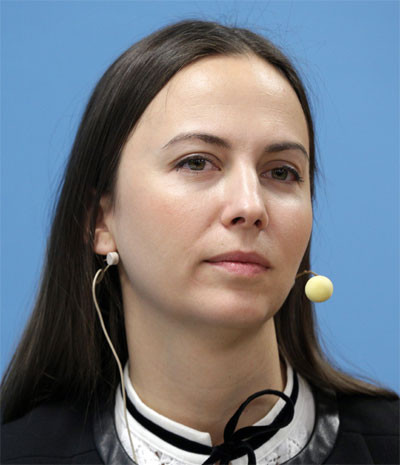Bulgaria may join the Eurozone on January 1, 2022 at the earliest, said Bulgaria’s Minister of Finance Vladislav Goranov. He voiced his bold forecast during a civil dialogue on the challenges facing Bulgaria on its road to a future Eurozone accession. Goranov reminded the participants that at the end of last year, following the requirements of the European Central Bank, several key amendments (to the Bulgarian National Bank Act and the Crediting Institutions Act) were adopted in order to enable Bulgaria’s accession to the ERM2 currency mechanism. The results of the stress tests of the six banks selected by the ECB for verification requested by the Bulgarian government in July 2018 are also expected in the summer of this year.
“The 19 Еurozone members together with the European Commission, the European Central Bank and Denmark hold the key to Bulgaria's membership in ERM 2”, Vladislav Goranov said. “If the ECB confirms the possibility of establishing close cooperation on banking supervision, but we get weaker support from our Eurozone partners, we will discuss once again whether to take this step.”
 If, however, Bulgaria enters the Eurozone waiting room, it will have to wait there for at least two years because: “This is the minimum time that each Eurozone member has spent in the waiting room so far”, Bulgaria’s MEP Eva Maydell said in an interview for Radio Bulgaria, adding:
If, however, Bulgaria enters the Eurozone waiting room, it will have to wait there for at least two years because: “This is the minimum time that each Eurozone member has spent in the waiting room so far”, Bulgaria’s MEP Eva Maydell said in an interview for Radio Bulgaria, adding:
“Whether the longer stay there will have a good effect depends on what the ambitions of the state and its citizens are, and whether we meet the criteria. It is quite normal that after the two-year period there might be another year in which the processes begin to take shape, that is, before the final adoption of the euro.”
The accession of Bulgaria to the common European currency will bring many benefits, as one of them will be that Bulgaria will have access to the European Stability Mechanism, which will guarantee the security of the savings of Bulgarian citizens, as Eva Maydell pointed out.
Regarding concerns about the rise in prices of basic goods and services after the adoption of the euro, Finance Minister Vladislav Goranov commented that such type of shocks were manageable and many mechanisms existed to minimize such risks. European Commission Vice President Valdis Dombrovskis said the European Commission was supporting Bulgaria's efforts to become part of the currency mechanism and later to adopt the common European currency. He assessed highly the will of the government and the results achieved by it in combating money laundering as well as in financial supervision. In his speech during the discussion, he also highlighted the problem of rising prices. According to him, a widespread and deep-rooted opinion is that the introduction of the euro leads to higher prices, but if we look at the last five Eurozone countries - Lithuania, Latvia, Estonia, Slovakia and Malta, we will see that monthly inflation there was quite limited - at levels between 0.2 and 0.6%, he argued.
Today the topic of Bulgaria's path to the euro and its possible effects on the Bulgarian economy is on the agenda of the traditional annual business meeting with the government, which is also attended by the EC Deputy Chairman Valdis Dombrovskis as a special guest.
English version Rossitsa Petcova
Photos: BTA
In the next 3 to 5 years, Bulgaria will experience a shortage of more than 250,000 specialists with higher education. For the past 8 years, Bulgaria has missed the opportunity, which a number of EU countries have taken advantage of, to conclude an..
The Governing Council of the Bulgarian National Bank (BNB) has ordered banks in the country to apply a minimum set of 6 indicators for monitoring credit standards when granting and renegotiating loans secured by residential real estate . The aim is to..
Regional policies are needed to address imbalances in employment and economic activity levels in different regions of Bulgaria, taking into account the specificities of each region. This is the recommendation of the Council for Economic Analysis study..
The caretaker government has instructed Deputy PM and Minister of Finance Lyudmila Petkova to submit, by 11 September, a proposal for amending the..

+359 2 9336 661
